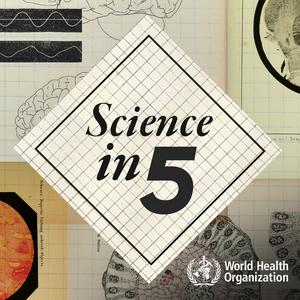Polio once paralyzed hundreds of thousands of children every year, striking fear into families across the world. Thanks to global vaccination efforts, cases have fallen by 99.9% since 1988. But polio is not gone yet.
In this episode of Science in 5, we speak with Dr. Jamal Ahmad about why polio eradication still matters, how close the world truly is to ending this disease forever, and what's at stake if we don't finish the job.
Polio spreads easily, respects no borders, and remains a threat as long as it exists anywhere. With only a few cases left in two countries, the tools, knowledge, and partnerships are stronger than ever—but sustained political commitment and global cooperation are essential.
Ending polio would mean no child is ever paralyzed by this disease again—and billions saved for health systems worldwide.
Make sure you and your family are vaccinated
Call on governments to keep supporting eradication
Get involved through partners like Rotary
Because eradication is all or nothing—and we are closer than ever.


